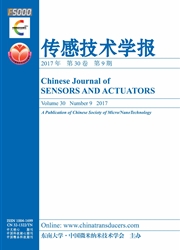

 中文摘要:
中文摘要:
针对无线传感器网络在实际应用环境中节点分布往往不均匀的状况,提出了一种分布式、无需测距设备支持的节点自身定位算法(简称为NCL算法)。NCL算法基于节点通信邻域内邻居节点的个数估算节点间距,并在计算节点坐标时对节点间距进行加权平均以提高定位精度。使用OMNeT++对NCL算法进行仿真,并与DV-Hop算法进行比较分析。仿真结果表明,NCL算法提高了非均匀网络中的定位精度,具有较小的通信开销,并具有一定的容错性和自适应性。
 英文摘要:
英文摘要:
Considering the fact that network topologies are usually non-uniform in Wireless Sensor Network applications, a range-free distributed localization algorithm called NCL (Neighbor-Count Localization) is brought forward. NCL use node's neighbor count and radio range to estimate the hop distance and calculate the distance between nodes. To improve localization accuracy, NCL use weighted node distances to compute the unknown node's position. Simulation under OMNeT++ indicate that, in contrast with DV- Hop, NCL improves the localization precision in non-uniform networks, has less communication overhead; and has the property of robust and self-organization.
 同期刊论文项目
同期刊论文项目
 同项目期刊论文
同项目期刊论文
 期刊信息
期刊信息
